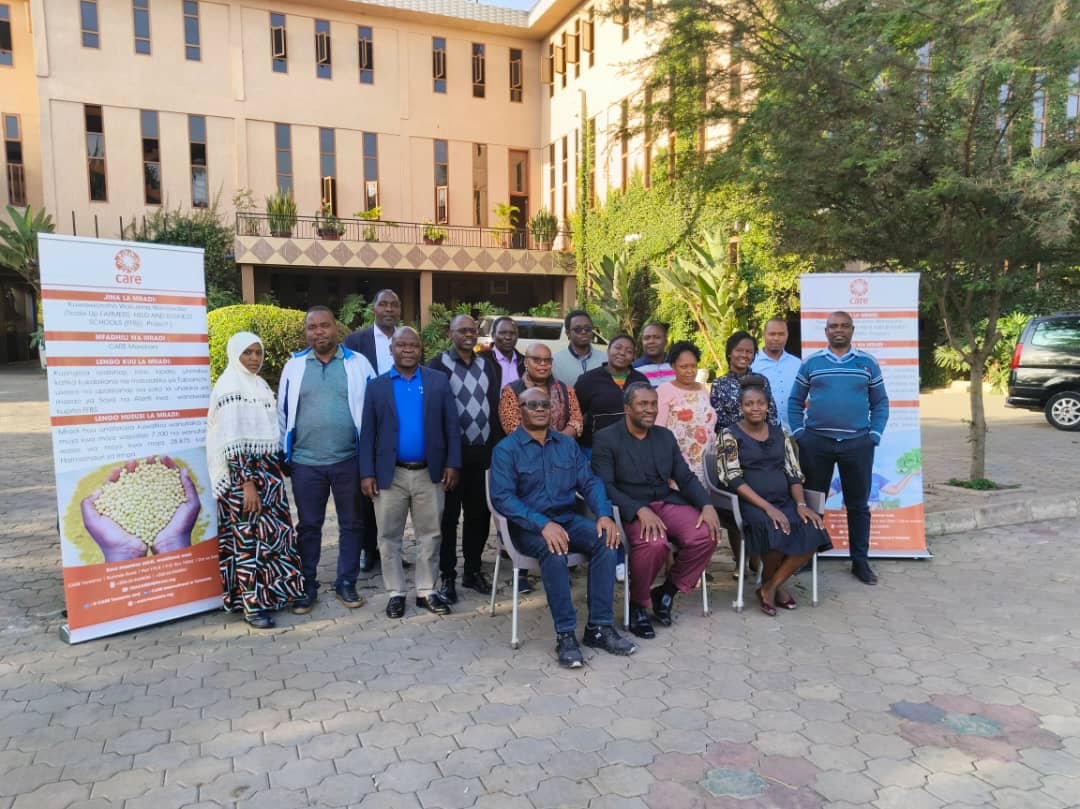 In collaboration with CARE International, select members of the Department of Agricultural Extension and Community recently participated in a Write shop and Trainer of Trainer (TOT) program held at the esteemed LUSH GARDEN Hotel in Arusha. The event, spanning from August 21st to August 25th, 2023, aimed to enhance the development and finalization of course materials and curricula.
In collaboration with CARE International, select members of the Department of Agricultural Extension and Community recently participated in a Write shop and Trainer of Trainer (TOT) program held at the esteemed LUSH GARDEN Hotel in Arusha. The event, spanning from August 21st to August 25th, 2023, aimed to enhance the development and finalization of course materials and curricula.
The TOT program saw the enthusiastic participation of both CARE International US and Tanzania staff. With a keen focus on advancing educational content and practical applications, the TOT covered two pivotal topics: course material creation and practical exercises for three integral crosscutting courses, as well as the meticulous finalization of curricula.
During the event, David Manyonga, the Advocacy Lead for CARE US FFBS, expressed CARE’s unwavering dedication to SUA (Sokoine University of Agriculture). He underscored the significance of integrating crosscutting courses into mainstream practices. This collaborative endeavor marks the inception of a transformative process, with the objective of synergizing research, training, and advocacy efforts to bolster practical community-based agricultural extension services across rural Africa. The overarching goal is to empower local communities with entrepreneurship skills, market access, enhanced productivity, improved nutrition, and climate-smart solutions. Other members who participated in the exercise include Dr. Rasel Madaha, Dr. Respikius Martin, Dr. Ahmad A.M. Kyaruzi, Dr. Siwel Nyamba, Semshitu Amiri Zapare, Glory Mella, Jane Mwakikagile, and Dr. Gozbert Lekenku Shausi from the Departmennt of Agricultural Extension and Community Development. Other members from SUA include Hekima Mliga, Dr Boniface Massawe, and Emmanuel Nkuwi. Other Staff from CARE include Dr. Maureen Miruka, Habib Masanja, and Christina John. Officials from Morogoro municipality shared useful inputs for practical sessions. They include Alisia Mbaga (Community Development Officer) and Aziza J. Said (Livestock Field Officer). Zainab Mchomvu (Principal Agricultural Officer at Ministry of Agriculture) also participated in the exercise.
Central to the program were the crosscutting courses, each designed to provide comprehensive insights and practical expertise. The three courses are:
- a) Agricultural Extension,
- b) Gender Transformative Approaches for Sustainable Agricultural Development, and
- c) Farmer Field and Business School (FFBS).
These courses are strategically aligned with findings from tracer studies and the HEET program, as highlighted in the Tracer Studies Report (refer to pages 5 and 6). The crosscutting courses strategically incorporate gender perspectives, business and entrepreneurship acumen, as well as innovative methods for delivering extension services.
The TOT program also saw the meticulous development of complete curricula that integrate the aforementioned critical crosscutting courses within the agricultural and economic development domain in line with the HEET, SUA and the UN.
This landmark event not only furthers the expertise and knowledge of participants but also symbolizes a significant stride towards bolstering sustainable agricultural development, knowledge dissemination, and practical skills delivery to benefit rural communities throughout Africa.
The exercise focused on three categories of degree programs:
- Category 1 programs are programs offered by the department of Agricultural Extension to sustain the field of agricultural Extension. The programs are designed in such a way to ensure the preservation of the departmental knowledge including produce academic staff to serve in the department in the future.
- Category 2 programs are programs that are offered by the department of Agricultural Extension in collaboration with other departments. The students taking the programs will take Agricultural Extension in conjunction with another field of study i.e. BSc. Agriculture (Extension and Education] the students major in Agriculture and Extension
- Category 3 programs are undergraduate programs from other departments at SUA that shop courses from the department of Agricultural Extension. Since the department will no longer offer BSc. Applied Agricultural Extension, the students from such programs will have to opt crosscutting courses from the department as either core courses or elective courses. However, the students pursuing programs in Category 1 and 2 will study crosscutting courses as core cores because the crosscutting courses offer important knowledge, skills, and attitudes in agricultural extension. For more information, please click the link below:
- Arusha TOT
